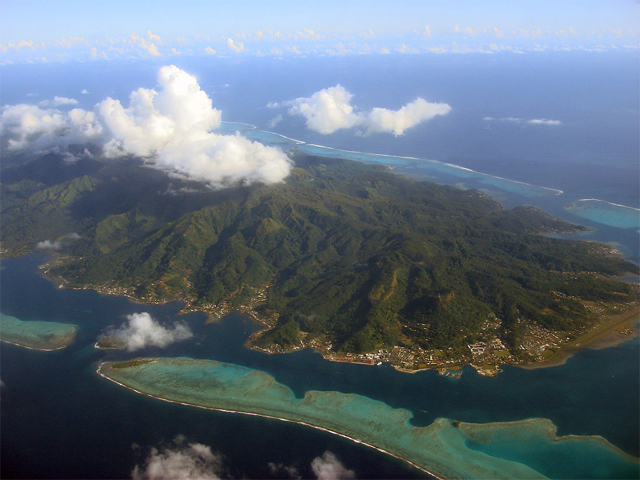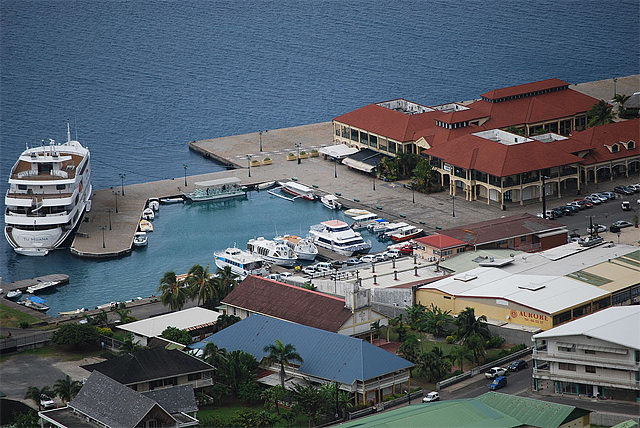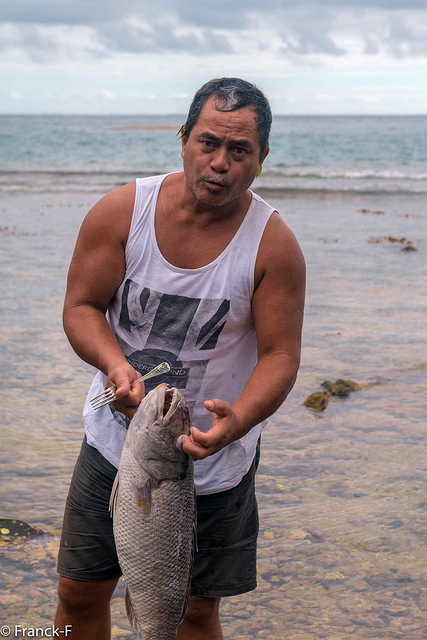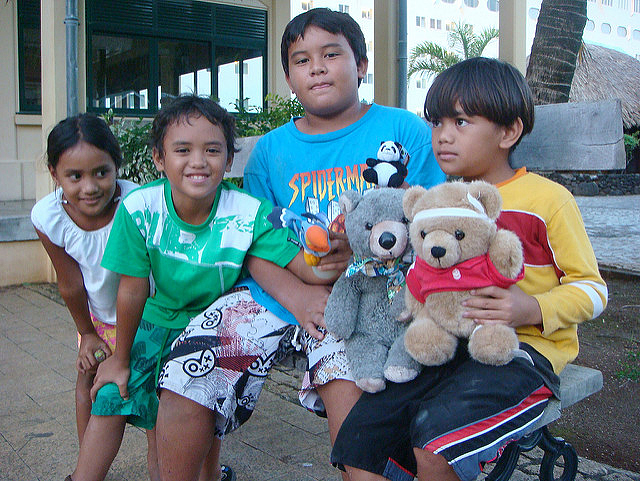A storm has been brewing over a proposed development on the northwest coast of Raiatea, but the disgruntled Tahitians are so far expressing their opposition through petitions and protests. One of the Leeward Group in the Society Islands, Raiatea is perhaps best known for its remarkable Taputapuatea Marae, a large grouping of ancient stone structures that was recently declared a UNESCO World Heritage Site.

The development that the people are questioning is a large marina proposed for the northwest coast of the island in the settlement of Tevaitoa, in the Tuamaraa Commune. An article in Tahiti Infos published on August 28 indicated that the proposed marina, to be financed with 310 million francs of funding, would free the marina at Uturoa, the administrative center of the island on the north coast, from the pressure of having too many yachts moored in it. The proposed marina would also promote tourism.
Some of the local people are opposed. They started circulating a petition in opposition to the project on Sunday August 27. However, Cyril Tetuanui, the mayor of the Tuamaraa Commune, expressed his forthright support for the project. It would bring jobs, 30 to 40 new ones, his figures show. The opponents are not convinced and besides they argue the new jobs would be for routine maintenance work that few will want to take on.

The writers of the petition expressed their conviction that the marina, with as many as 100 yachts tied up, would pollute the Tevaitoa lagoon and harm the fishing resources for giant clams, crabs, sea urchins, and fish on which the residents depend. The proliferation of dirt and fine particles in the lagoon generated by the marina would harm the entire web of life in the water. They also expressed concern about the renewal of the lagoon by water from the ocean if the marina were to be built.
The mayor said that he is quite aware of the dangers that the proposed project could pose to the environment. But he assured the reporter that his government is taking all proper precautions to prevent any harm being done to the ocean or the lagoon. He is calling the project an “ecological marina.” The petition also mentioned the possibility of illegal trade developing from the new facility, but the suspected harm to the environment was the major issue stirring up the people.

A news report on September 22 indicated that the environmentalists of Raiatea have been stepping up their opposition. Gérard Goltz, who lives beside the water that would be affected, questioned why anyone would want to destroy everything they have in the natural environment. Cali Rota, another person who lives near the water, said that dredging the coral in the lagoon to construct a marina will have an impact on future generations and their ability to harvest fish and crabs. The mayor responded that the locals certainly can’t continue to live on marine resources alone. Besides, he is negotiating with outside investors to establish an artificial breeding facility for sea cucumbers and crabs.
Stellio Holman, another resident, pointed out that the marina would doubtless open the community to arms trafficking and other illicit activities, problems that Mayor Tetuanui does not deny. His response was that the residents will have to be vigilant to preserve their society in the face of those possible dangers.

The more recent news story did not indicate any resolution, as yet, to the issue, familiar as it might seem to readers in communities around the world where proposed developments often appear likely to harm the natural environment. The issue will probably be resolved peacefully, if the traditions of the Society Islands still prevail. Robert Levy, who studied those traditions on Huahine, an island that is only 20 miles east of Raiatea, had a lot to say about the ways the people brought conflicts out into the open and settled them in order to avoid anger from developing and fostering violence.
It is clear from Levy (1978) why the residents of Raiatea are so opposed to the development. He indicated in that article that the physical and cultural environment of the Tahitians had a lot to do with fostering their gentleness. The adaptation of the villages to the natural environment minimized external frustrations, since food and other needs were plentiful and easily available.

But the Tahitians have clearly changed since Levy did his field work. He argued that their culture served to reduce frustrations. They did not believe they had any control over nature or over the behavior of other people; in fact, they believed that trying to change the nature of reality inevitably caused a rebound that would destroy the initiator. People were optimistic but passive, a condition produced by socialization and reinforced by other practices and values in their society. Their universe was less frustrating cognitively than one where individuals are conceived of as able to change anything. Today, however, the eagerness of the people of Raiatea to circulate petitions hoping to stop a planned development represents a major change since Levy’s time.
Levy (1969) also wrote that crime in the Society Islands was comparatively rare. A policeman who had worked in other French possessions—Morocco, Algiers, French Guiana, and Indochina—commented that the Tahitian people were “lambs” in contrast with the others he had worked with. The police officer said that there had been no serious crime on the island of over 3,000 inhabitants that he was assigned to, and only occasional disturbances connected with drinking.
That absence of crime has apparently changed as well. A website that serves the needs of private yachts indicates, on its page describing Raiatea and the yachting facilities on the island, that “There is no security on [the public dock in Uturoa] and there continues to be incidents of thefts from boats here (both unlocked and locked) …. It goes without saying that you should lock the boat up at night and when going ashore.”